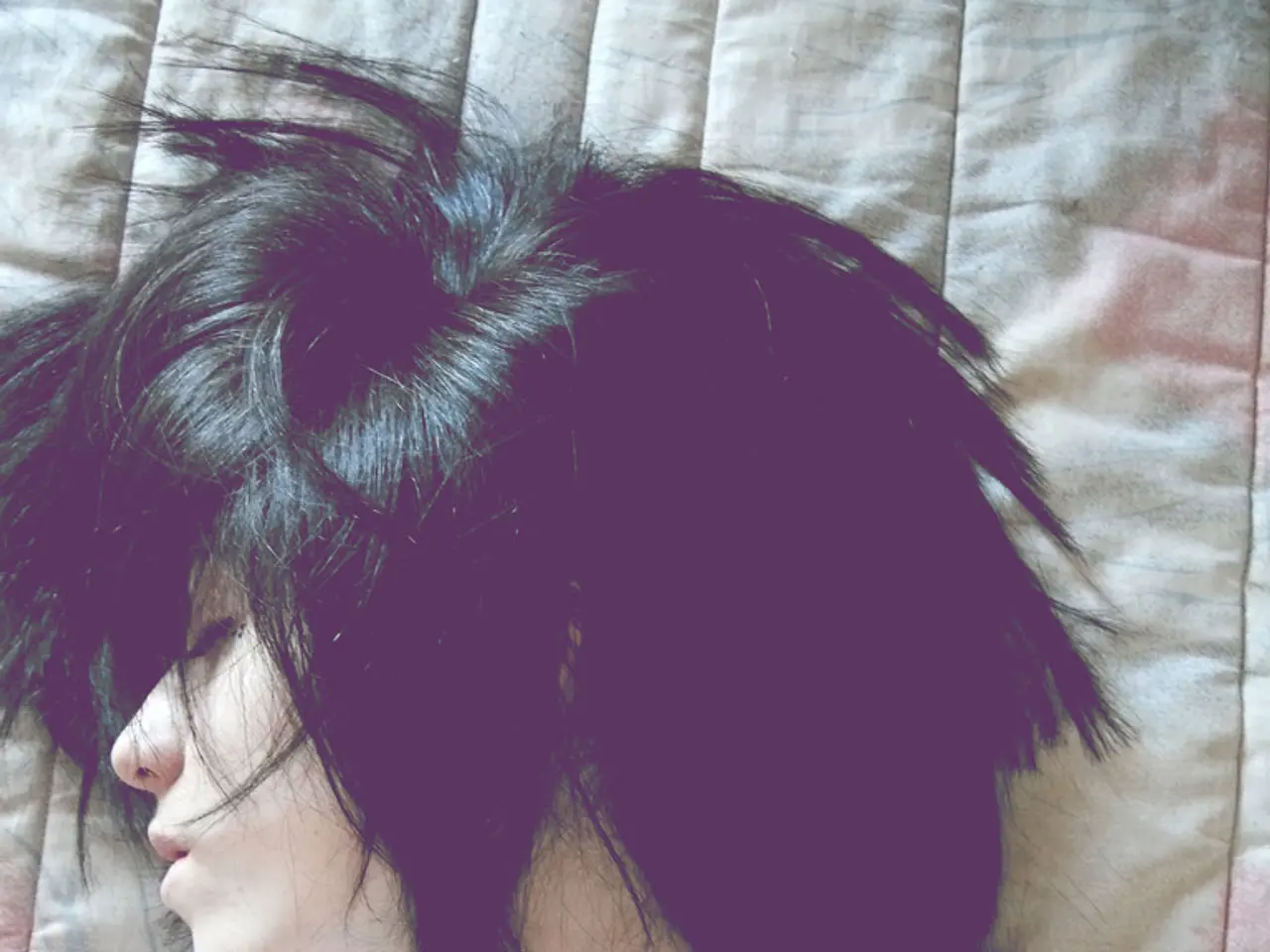Optimal Mattresses for Minimizing Nightly Snoring Sounds
In the quest to quieten the nightly symphony of snoring, several environmental changes and mattress considerations have been found to potentially help.
Firstly, elevating the head of the bed can be a simple yet effective strategy. Using risers, a wedge pillow, or an adjustable frame can keep your airway more open during sleep, thereby reducing snoring. A study involving 25 participants reported a 7% reduction in snoring duration while sleeping in a more upright position on an adjustable mattress.
One mattress that stands out as a potential solution is the Saatva Solaire, an adjustable mattress. While research on the direct impact of mattresses on snoring is limited, the Saatva Solaire's adaptability could offer a promising solution. It is also important to consider the type of mattress, firmness, sleep trial, and warranty when purchasing a new mattress for snoring.
However, it's essential to note that the firmness of the mattress does not seem to significantly affect snoring. Other factors, such as being overweight, being pregnant, being older, or sleeping in certain positions, smoking, drinking alcohol, using depressants or other muscle relaxants, having a cold or an allergy, having a deviated septum or other structural features, can contribute to snoring.
Positive Airway Pressure (PAP) devices, including Continuous Positive Airway Pressure (CPAP), Bilevel Positive Airway Pressure (BiPAP), and Auto-adjusting Positive Airway Pressure (APAP) machines, are effective in reducing snoring by preventing airway obstruction. These devices require a prescription and calibration by a sleep technician.
Climate considerations, such as temperature control, have been linked to sleep quality and the risk of sleep apnea, which can exacerbate snoring. However, specific environmental changes like temperature control are not widely documented as a direct method for reducing snoring. Instead, addressing overall sleep environment and treating sleep disorders are emphasized.
General sleep environment improvements, such as maintaining a regular sleep schedule, avoiding alcohol and sedatives before bedtime, and optimizing sleep conditions, can indirectly help reduce snoring by promoting better sleep quality and reducing factors that contribute to airway obstruction.
For those experiencing persistent snoring, it is advisable to discuss lifestyle changes or surgical options with a doctor. If snoring is a concern for you or your sleeping partner, consider these environmental changes and mattress considerations as potential solutions.
[1] Sleep Foundation [2] American Academy of Sleep Medicine [3] Mayo Clinic
- The Saatva Solaire, an adjustable mattress, could potentially help reduce nightly snoring due to its adaptability, despite limited research on the direct impact of mattresses on this issue.
- Using Positive Airway Pressure (PAP) devices such as CPAP, BiPAP, or APAP machines, which require a prescription and calibration by a sleep technician, can effectively reduce snoring by preventing airway obstruction.
- Maintaining a regular sleep schedule, avoiding alcohol and sedatives before bedtime, and optimizing sleep conditions can indirectly help reduce snoring by promoting better sleep quality and reducing factors that contribute to airway obstruction.




